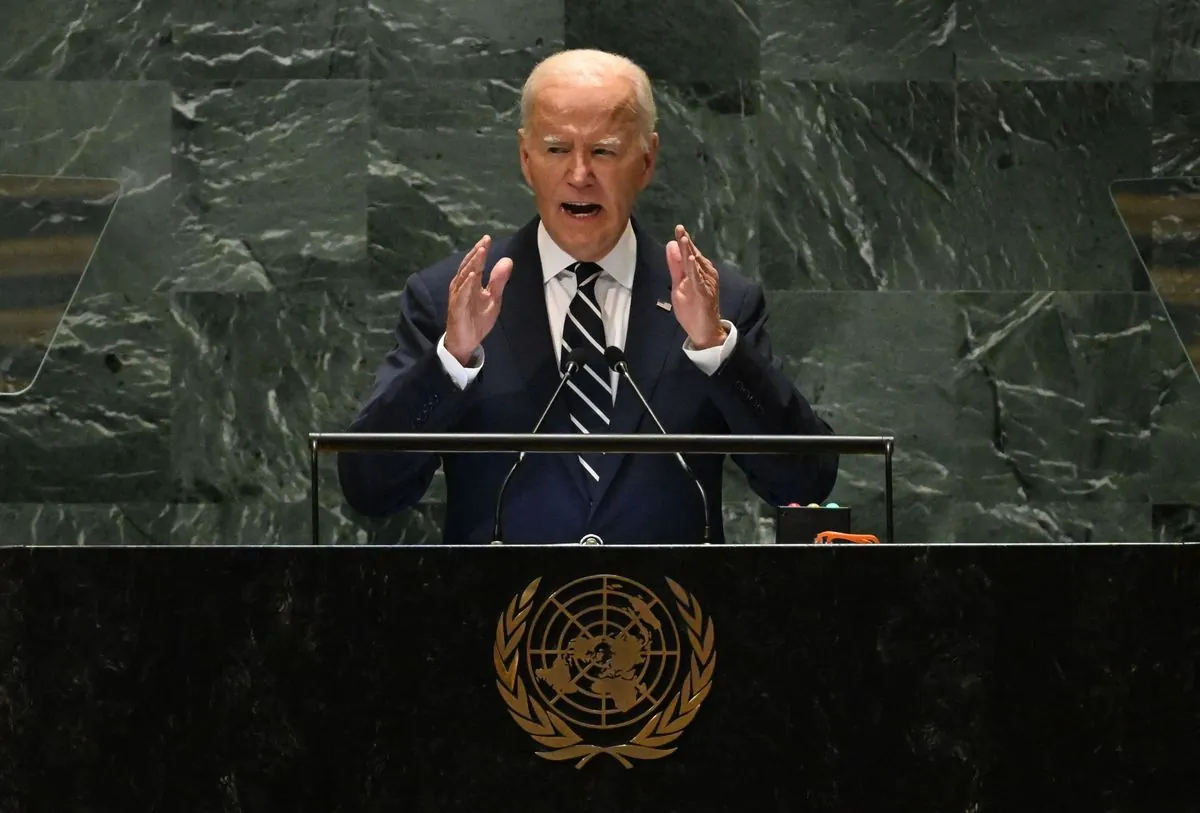Joe Biden, the President of the United States, recently addressed the ongoing tensions in the Middle East, acknowledging the potential for an all-out war while also expressing optimism for a possible settlement. Speaking on the ABC talk show "The View," Biden shared his thoughts on the complex situation involving Israel, Gaza, and Lebanon.
The President's comments come amidst his attendance at the United Nations General Assembly (UNGA) meetings in New York City. The UNGA, one of the six principal organs of the United Nations, convenes annually in September at the UN headquarters. This year's assembly takes place against the backdrop of escalating conflicts in the region.
Biden emphasized the dual possibilities facing the Middle East: "An all-out war is possible, but I think there's also the opportunity - we're still in play to have a settlement that can fundamentally change the whole region." This statement reflects the delicate balance between conflict and diplomacy that characterizes the current situation.
The ongoing tensions stem from a nearly year-long war between Israel and Hamas, the Palestinian Sunni-Islamic fundamentalist organization controlling the Gaza Strip. The conflict has now threatened to expand, potentially involving Lebanon and the Iran-backed Hezbollah, a Shia Islamist political party and militant group.
In response to these developments, Israel has intensified its military actions, widening airstrikes in Lebanon and intercepting a missile reportedly fired by Hezbollah towards Tel Aviv, where the headquarters of Mossad, Israel's national intelligence agency, is located.
Biden, long considered a staunch ally of Israel, reiterated his support for a two-state solution to the Israeli-Palestinian conflict. This approach, which envisions an independent State of Palestine alongside the State of Israel, has been a focal point of peace efforts for decades. The President openly expressed his disagreement with Israeli Prime Minister Benjamin Netanyahu on this issue, stating, "I don't agree with his position. There needs to be a two-state solution. It needs to happen."
The U.S. President outlined a step-by-step approach to addressing the regional tensions. He emphasized the importance of securing ceasefires with Hezbollah and in Gaza before turning attention to the West Bank, a landlocked territory currently under Israeli control.
Biden's commitment to resolving the conflicts was evident in his words: "It's possible, and I'm using every bit of energy I have ... to get this done. There's a desire to see change." This statement underscores the United States' continued role as a mediator in Middle East peace negotiations, a position it has held for many years.
The President's remarks reflect the complex history of the region, including the Israeli-Palestinian conflict that has persisted for over 70 years. Previous peace efforts, such as the Oslo Accords signed in the 1990s, have attempted to resolve the issues, but lasting peace remains elusive.
As the leader of a nation that has been a strong ally of Israel since its establishment in 1948, Biden's stance on the two-state solution and his open disagreement with the Israeli leadership mark a significant moment in U.S.-Israel relations. It also highlights the challenges facing any potential peace process in a region where historical, political, and religious factors intertwine to create a complex geopolitical landscape.
The coming weeks and months will be crucial in determining whether the region moves towards further conflict or takes steps towards a comprehensive settlement. As the situation unfolds, the international community, led by influential bodies like the United Nations and key players such as the United States, will continue to play a vital role in shaping the future of the Middle East.
